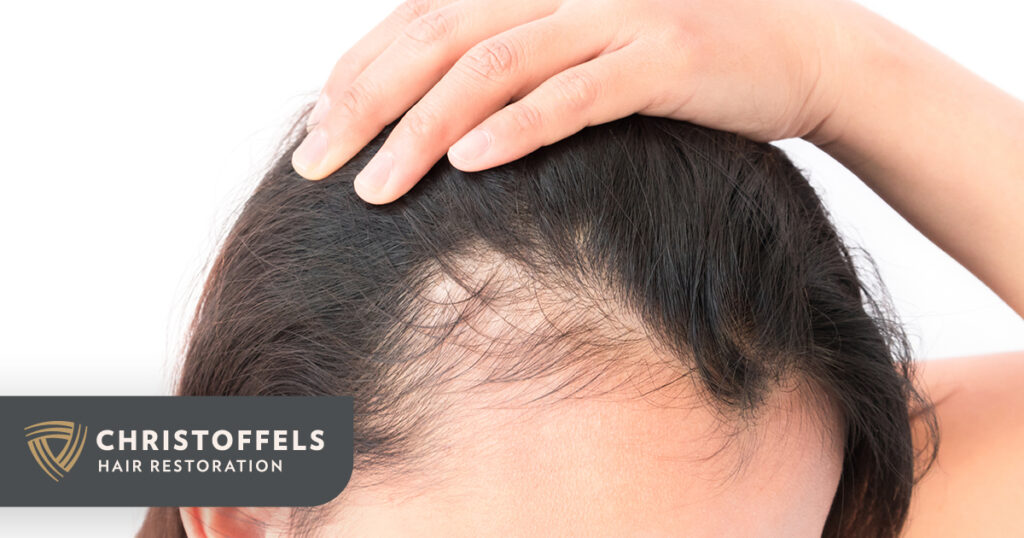AIM Uncovered
Exploring the latest insights and trends in technology and innovation.
Hair Today, Gone Tomorrow: Decoding the Mystery of Hair Loss
Unlock the secrets of hair loss! Discover causes, solutions, and tips to reclaim your mane in Hair Today, Gone Tomorrow.
Top 5 Causes of Hair Loss: Understanding the Science Behind It
Hair loss is a common concern that affects millions of people worldwide. Understanding the top causes of hair loss can help individuals identify potential factors and seek appropriate solutions. The first key contributor is genetic predisposition, often referred to as male or female pattern baldness. This hereditary condition leads to progressive thinning of hair, starting from the temples or crown of the head. In addition, hormonal changes play a significant role, particularly during pregnancy, menopause, or due to conditions like polycystic ovary syndrome (PCOS).
Another major cause is stress, which can lead to a temporary type of hair loss known as telogen effluvium. This condition occurs when hair follicles enter a resting phase, resulting in increased shedding. Additionally, nutritional deficiencies, particularly a lack of essential vitamins and minerals such as iron, vitamin D, and zinc, can severely impact hair health, causing thinning and hair loss. Lastly, certain medical conditions and treatments, including autoimmune diseases and chemotherapy, can also lead to significant hair loss. Understanding these factors is crucial for anyone looking to maintain healthy hair.

Effective Treatments for Hair Loss: What Works and What Doesn't
Hair loss affects millions of people worldwide, leading many to seek solutions that can restore their hair and confidence. Among the most effective treatments for hair loss are FDA-approved options such as minoxidil and finasteride. Minoxidil, available over the counter, is a topical treatment that promotes hair regrowth by improving blood circulation to the hair follicles. It is essential to use it consistently for several months to see results. Finasteride, on the other hand, is a prescription medication that works by inhibiting the hormone responsible for hair loss in men. While these treatments have shown significant success for many, individual results can vary, and it is important to consult with a healthcare professional before starting any regimen.
In addition to pharmaceutical treatments, some people turn to natural remedies and lifestyle changes to address hair loss. Options such as essential oils, biotin supplements, and nutrient-rich diets have gained popularity, though scientific evidence supporting their effectiveness is limited. Additionally, hair transplant surgeries have become a sought-after solution, offering long-lasting results, albeit at a higher cost and with recovery time. Notably, some treatments, such as laser therapy, have shown promise but require further research for conclusive proof of their efficacy. Ultimately, understanding what works and what doesn't in the realm of hair loss treatments is crucial for making informed decisions towards restoration.
Is Stress the Hidden Culprit Behind Your Thinning Hair?
The connection between stress and hair loss is becoming increasingly recognized in the medical community. When your body experiences high levels of stress, it triggers a response that can affect various systems, including your hair follicles. This condition, known as telogen effluvium, occurs when stress causes hair follicles to prematurely enter the resting phase of the hair growth cycle, leading to noticeable thinning. It is important to recognize that this phenomenon can occur weeks or even months after a stressful event, making it a hidden culprit that many often overlook.
Aside from direct hair loss, stress can also exacerbate existing hair conditions. For instance, individuals with alopecia areata or other autoimmune disorders may find that stress contributes to flare-ups, resulting in increased hair shedding. Managing stress effectively is vital for maintaining overall health and well-being, and it can be beneficial for your hair as well. Techniques such as meditation, regular exercise, and ensuring adequate sleep can help mitigate stress levels, promoting healthier hair growth and potentially reversing the effects of stress-related hair thinning.